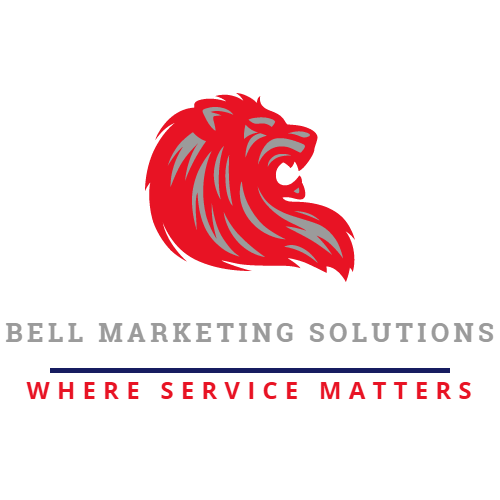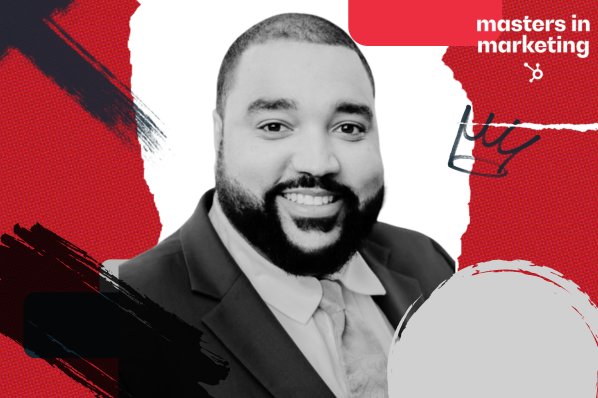You don‘t need to be a sneakerhead to know about New Balance—I know I’m not.
The 118-year-old footwear company is everywhere, from TV to film to neighborhood cookouts, despite changes in fashion, consumers, and how people find and purchase new products.
So, what‘s the brand’s secret sauce to staying relevant longer than we’ve been alive?
You don‘t need to be a sneakerhead to know about New Balance—I know I’m not.
The 118-year-old footwear company is everywhere, from TV to film to neighborhood cookouts, despite changes in fashion, consumers, and how people find and purchase new products.
So, what‘s the brand’s secret sauce to staying relevant longer than we’ve been alive?
New Balance Marketing Associate Calvin Goncalves says thoughtful partnerships and innovative strategies play a huge role. Goncalves is an expert with a lot on his plate.
He‘s part of a team at New Balance that plans out the brand’s strategy years in advance while considering past campaigns and what worked or didn’t work in previous years.
He knows a lot about brand partnerships, having been involved in New Balance‘s creative collaborations with DLTR and Joe Freshgoods.
Fortunately, Goncalves told us what it’s like to walk in his shoes (pun intended), and we chatted about innovation, collaborations, and the best way to partner with others in a campaign.
The Do‘s (and Don’ts!) of Brand Partnerships, According to a New Balance Marketer
Goncalves says partnerships are great for go-to-market strategies because they expose products and services to new audiences.
But working with influencers is a doozy, so here are some of his tried-and-true tips for getting it right.
1. Act natural. Don’t force it.
Goncalves says brands should avoid forcing a partnership if the chemistry isn‘t there. He mentions New Balance’s partnership with Joe Freshgoods as an example.
“When we bring outside people in, like a Joe Freshgoods, from a brand level—we don’t force it,” he says. “We allow them to be themselves but also ensure it’s good for the brand. Instead of trying to force these concepts on people, we say, ‘This is the product that we have. What do you envision?’”
In other words, partner with a brand that is already aligned with your values, show them what your brand brings to the partnership (e.g., a new product or service), and collab, collab, collab.
“We do this instead of just trying to pick the most popular person, shoe, or moment,” he says. “When we just stick all these things together, the collaboration comes across as watered down and tacky.”
Which brings me to our next point.
2. Don’t just stick your best shoe onto the trendiest TikToker.
Picture this all-too-likely scenario: You’re in a pitch meeting with your team to brainstorm some hip, trendy influencers who might want to partner with your brand. (Side note: Am I hip and trendy if I say the words hip and trendy?)
And then your coworker has a great idea. “Ooh, ooh!” he says, shooting out of his seat. “How about Addison Rae? She has 88 million followers… How perfect?”
Goncalves says this is a mistake.
“Okay, cool, someone might have 15 million followers on TikTok, but do they fit your brand?” Goncalves asks. “People are very savvy, and you don’t want anyone to think of something as a money grab.”
Instead, Goncalves suggests considering the ideas and vision you already have for your brand and seeking partnerships with people who align with those goals.
“Do a lot of research and listen to what people are saying,” he says. “If you’re getting talent, you must vet them because it could blow up in your face. You need to know the right partner; that’s the most important thing.”
3. Be innovative.
New Balance is just shy of 120 years old, and Goncalves credits the company’s longevity to its obsession with innovation.
“We have to be innovative to compete with the bigger brands that are on the rise right now.”
An example of innovation came from an event New Balance hosted with collaborator DLTR in Atlanta, Georgia.
For the event, the New Balance team decided to go all-out with an ice cream truck wrapped in images of the sneaker, plus CGI and 3-D modelling of the shoe.
The brainstorming session resulted in the perfect summertime event to promote the launch of New Balance x DLTR’s sneaker line, Gelato.
Local children and families were served free ice cream from a Gelato-themed truck as kid influencers like King Moore, Heiress Harris, Semaj, and Royal Rose World put on a performance.
Other highlights included games and a face-painting station.
“I was in Atlanta for that activation,” he says. “I got to see it come to life. Honestly, it’s the coolest thing I’ve probably ever done.”
Remember what we said about scoring the right partnership? Well, there’s a reason DLTR was chosen to work with New Balance.
“DLTR knows their community and they know their audience, so that’s why we partnered with them,” he says. “They actually brought live kid models and kid influencers who are huge in their market. And then we made it a perfect balance.”
4. Use a blast from the past.
Let‘s return to our earlier mention of New Balance’s latest collaboration with Joe Freshgood. The partnership consists of two pairs of sneakers called the “When Things Were Pure” pack that are an homage to the early 2000s and Y2K fashion.
Goncalves says nostalgia is a great tool for marketing that can make for creative and authentic partnerships.
“I always suggest tapping into some nostalgia whenever you do something,” he says.
Goncalves suggests thinking about a nostalgic moment and finding ways to connect it with your new audience.
For example, watching videos from the DLTR collaboration event reminded me of the summer block parties of my childhood and begging my parents for a few dollars to get ice cream or standing in line with my friends eagerly waiting to get our faces painted.
5. Remember, teamwork makes the dream work.
Partnerships and collaborations are opportunities to share new ideas, reach different audiences, and create innovative, strategic campaigns. However, a partnership is only as good as the teamwork behind it.
“The most important thing that I would like to stress is teamwork and working cross-functionally,” Goncalves explains. “You see the finished product, but a lot of teams work on it to make it happen.”
Like my middle school soccer coach, Goncalves says team work is the key to the success of any partnership, be it with a creator or another brand.
“The biggest thing for me is being a team player, whether I need to lead or step back,” he says. “I just really want to drive home the point that teamwork is the essential recipe for making things happen.”
![]()




